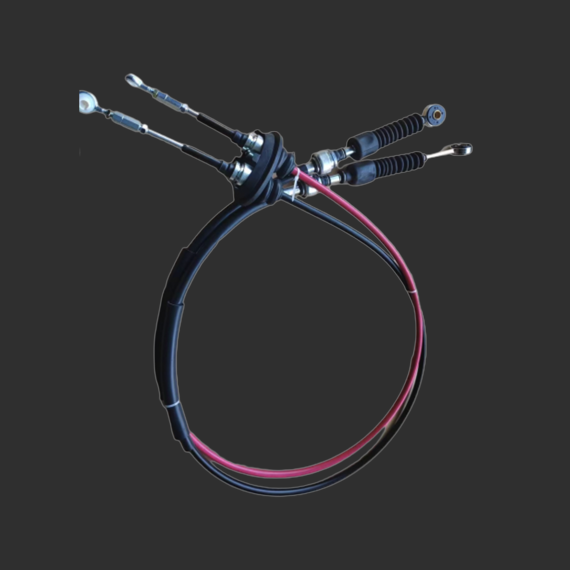clutch fluid hose
Understanding Clutch Fluid Hoses Importance, Maintenance, and Replacement
The clutch system is an essential component of any vehicle equipped with a manual transmission. It allows for the smooth engagement and disengagement of the gears, enabling seamless transitions between acceleration and deceleration. One crucial part of this system is the clutch fluid hose. This article aims to shed light on the significance of clutch fluid hoses, their maintenance, and the need for replacement.
What is a Clutch Fluid Hose?
The clutch fluid hose, often known as the clutch line, is a rubber or metal tube responsible for transporting hydraulic fluid from the clutch master cylinder to the clutch slave cylinder. The hydraulic fluid's function is to transfer force from the pedal you press to the clutch mechanism. This enables you to effectively disconnect the engine from the transmission when shifting gears.
Importance of Clutch Fluid Hoses
1. Hydraulic Performance The performance of a vehicle’s clutch largely depends on the integrity of the clutch fluid hose. If the hose is compromised, it can lead to issues in the hydraulic system, making it difficult to engage or disengage the clutch.
2. Safety Considerations A malfunctioning clutch system can pose significant safety hazards. If the hose develops leaks or cracks, it can result in a loss of hydraulic pressure. This might cause the driver to lose control over gear shifting, which can lead to dangerous situations, especially in heavy traffic.
3. Preventing Damage A healthy clutch fluid hose can prevent further damage to other components within the clutch system. For instance, low hydraulic fluid levels due to leaks could result in the premature wear of the clutch plates, leading to costly repairs.
Signs of a Failing Clutch Fluid Hose
Recognizing the symptoms of a failing clutch fluid hose can save you from extensive repairs down the line. Some signs to watch out for include
- Difficulty Engaging/Disengaging Gears If you notice that shifting gears becomes increasingly challenging or requires more effort, it may indicate an issue with your clutch fluid hose
.- Fluid Leaks Any visible leaks around the clutch area, especially near the master or slave cylinder, should not be ignored. Check your driveway or garage for spots, particularly if you notice a reddish or brownish liquid.
- Spongy Clutch Pedal A spongy or soft feel when pressing the clutch pedal can signify air in the hydraulic system or insufficient fluid, often linked to hose problems.
- Unusual Noises Grinding or unusual noises when shifting could also be a signal that the clutch fluid hose is failing.
clutch fluid hose

Maintenance Tips
Maintaining the clutch fluid hose is crucial for the longevity of your clutch system. Here are a few tips to keep in mind
1. Regular Inspections Regularly inspect your clutch fluid hose for any signs of wear, cracks, or leaks. This should be part of your routine vehicle maintenance.
2. Check Fluid Levels Always monitor the hydraulic fluid levels in the reservoir. If you find that the levels are consistently low, it could be an indication of a leak within the system.
3. Professional Checks Consider having your vehicle's clutch system inspected by a professional during regular service intervals. They can check the integrity of the clutch hose and other components.
Replacement of Clutch Fluid Hose
If you notice any of the signs mentioned earlier, or if your clutch fluid hose has been deemed faulty during an inspection, it's important to replace it promptly. The replacement process typically involves
1. Lifting the Vehicle The vehicle needs to be lifted securely to access the clutch components.
2. Removing the Old Hose The old clutch fluid hose is removed by disconnecting it from both the master and slave cylinders.
3. Installing the New Hose A new hose is then fitted, ensuring that all connections are secure and leak-free.
4. Bleeding the System After installation, the hydraulic system must be bled to remove any air and ensure proper functionality.
Conclusion
The clutch fluid hose may be a small component of the clutch system, but its importance cannot be overstated. Regular maintenance and timely replacement can enhance the longevity and performance of your vehicle’s clutch system. By staying vigilant about the health of your clutch fluid hose, you can ensure a safer and smoother driving experience.
-
Workings of Clutch Pipe and Hose SystemsNewsJun.04,2025
-
The Inner Workings of Hand Brake Cable SystemsNewsJun.04,2025
-
The Secrets of Throttle and Accelerator CablesNewsJun.04,2025
-
The Hidden Lifeline of Your Transmission Gear Shift CablesNewsJun.04,2025
-
Demystifying Gear Cables and Shift LinkagesNewsJun.04,2025
-
Decoding Clutch Line Systems A Comprehensive GuideNewsJun.04,2025
